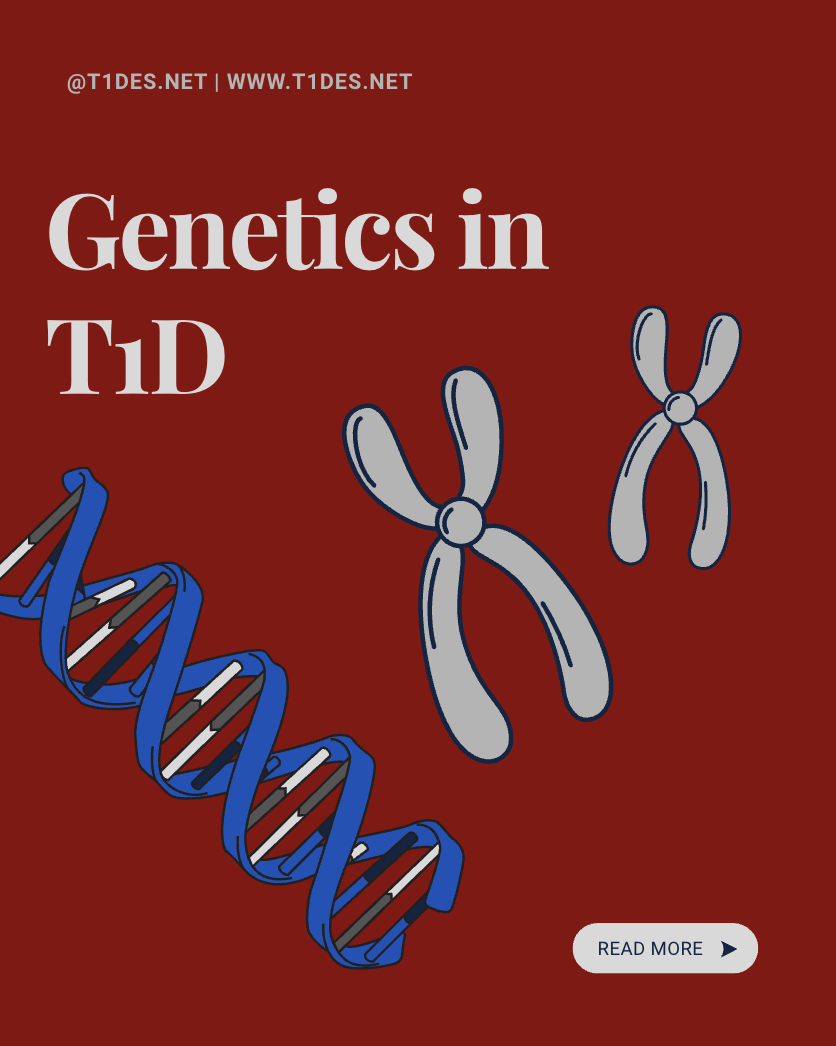For decades, scientists have been researching the exact cause of type 1 diabetes. Today, we know that inherited risk factors, environmental triggers, and a set of immune-related genes in the HLA complex can influence one’s likelihood of developing the disease. Furthermore, the rise of gene therapy derived from these findings offers the possibility of curing type 1 diabetes altogether.
Inherited Risk Factors
Genetics can play a major role in T1D, but the condition is not inherited predictably. Having a family history of T1D certainly increases the risk. In fact, siblings of someone with type 1 diabetes have about a 1 in 20 chance of developing it themselves, compared to about a 1 in 300 chance in the general population, according to the American Diabetes Association. Still, it is estimated that most people with a genetic predisposition never develop the disease. This suggests that while genes could be risk factors for T1D, environmental triggers have a more substantial effect on developing the disease.
Environmental Triggers
Environmental exposures can spark the immune system’s attack on insulin-producing beta cells. Viral infections, gut microbiome changes, dietary factors, and even sunlight and vitamin D exposure have all been studied as potential triggers. It is important to consider that these triggers don’t cause diabetes on their own. They act with genetic vulnerabilities to produce an autoimmune reaction.
The HLA Complex
Specific variants in the human-leukocyte-antigen (HLA) complex are hypothesized to increase the risk of type 1 diabetes, specifically the HLA-DQA1, HLA-DQB1, and HLA-DRB1 genes. These genes encode proteins that affect the immune system by providing antigens, which are critical to the immune response. However, in people with high-risk variants of the HLA complex, beta cell proteins may be presented as antigens, triggering an autoimmune attack. Around 90% of individuals with T1D carry at least one of the high-risk variants mentioned, compared to about 40% of the general population. Nonetheless, these genes don’t guarantee diabetes, only increasing the likelihood that an environmental trigger will activate the autoimmune response.
Gene Therapy
The connection between genes and the autoimmune responses involved in type 1 diabetes has resulted in innovations in gene therapy to treat the disease. Scientists are exploring ways to modify HLA gene expression or use mRNA or CRISPR tools to restore immune tolerance before T1D fully develops. Check out our article on emerging T1D treatments to learn more!
A combination of genetics and environmental factors is theorized to cause T1D. While the risk for T1D cannot fully be eliminated, gene therapy innovations are bringing us closer to a future where treatment of the disease can be revolutionized. Understanding our genetic risk factors is no longer about prevention–it can lead to cures for type 1 diabetes.
Sources
American Diabetes Association. “Genetics of Diabetes.” Diabetes.org, American Diabetes Association, 2025, diabetes.org/about-diabetes/genetics-diabetes.
Medline Plus. “Type 1 Diabetes: MedlinePlus Genetics.” Medlineplus.gov, 18 Aug. 2020, medlineplus.gov/genetics/condition/type-1-diabetes/#causes.
Moore, William. “Genetics and Type 1 Diabetes.” WebMD, WebMD, 6 Sept. 2021, www.webmd.com/diabetes/diabetes-type-1-genetics.

Leave a Reply